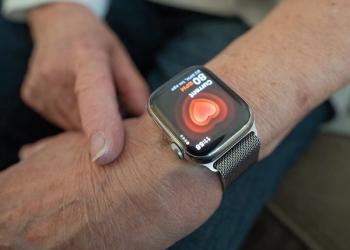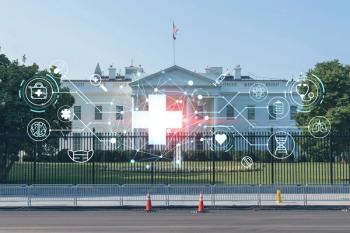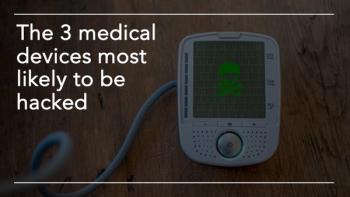
Study found that wearable sensors can be leveraged to link psychiatric illnesses, digital phenotypes, and genetic factors

Study found that wearable sensors can be leveraged to link psychiatric illnesses, digital phenotypes, and genetic factors

Just 25% of patients who self-monitor their heart health discuss the data with their doctors.

Platform allows for highly precise detection of disease-specific cell-free DNA

The newly approved TriVerity combines a single-use test cartridge and the Myrna instrument to deliver results at the point of care, informing decisions related to antimicrobial therapy, reduce unnecessary hospital admissions and guide patient disposition.

Global data demonstrates optimism, regional disparities and knowledge gaps that need to be addressed to increased public acceptance of emerging technologies.

Boston Scientific showcases promising data on heart treatments at AF Symposium 2025

Researchers found that common wearable devices could help patients manage their IBD better

The Center for Computational Medicine will focus on developing advanced medical applications and modeling to simulate disease progression, predict outcomes and personalize care.

Not everything at CES is televisions and smart appliances - some nifty health gadgets were on display, too

Digital health is no longer just a disruptor: it’s an integral part of the health care system

Most people struggle to pull basic information out of standard pathology reports—like whether or not they have cancer.

A new Medscape and HIMSS report found that AI in health care settings is primarily used for administrative tasks, with clinical applications still in the early stages of adoption.

Pradeep Kumar Jain, senior director of health care at Tredence, outlined five significant predictions for 2025.

Patient challenges could be addressed at the time a provider writes a prescription - if providers and their staff are equipped with the right technology and information.

With the majority of devices manufactured outside the U.S., any increase in tariffs is likely to drive up health care costs

When providers adopt digital tools, they can deliver a better consumer experience that promotes greater patient satisfaction and increases the likelihood of prompt collections.

Medical devices, particularly older ones, are common in any medical setting. But did you know that some of them can become gateways for hackers to access sensitive information?

With so many AI solutions, how can physicians sort through the offerings to determine what will work best for their practice?

Blue Shield of California and Salesforce look to grant prior authorization answers in near real-time come January 2026.

Michelle Tarver takes over the lead role at CDRH after serving as interim director since July

Cloud-based tool makes data review more efficient.

New treatment is the first for lung cancer patients in over eight years

As generative AI technologies advance, establishing standardized evaluation metrics is necessary to ensure safety and efficacy in health care.

New Academy president discusses new study on AI and legal challenges around noncompete agreements.

A simple fix can solve a lot of complex problems for medical practices